Author and pastor Tim Keller begins his new book with a warning about forgiveness gone wrong.
Keller cites a famous parable found in the New Testament Book of Matthew, where a king forgives one of his servants, who owes a fortune and can’t repay. Rather than be grateful, the servant turns around and has one of his co-workers, who owed him a pittance, tossed in jail.
When the king finds out he is furious and revokes his initial forgiveness.
“We should not miss the confrontational nature of this parable,” Keller writes in “Forgive: Why Should I and How Can I?” out Tuesday from Viking. “Jesus’ parable about forgiveness is not a feel-good story about people receiving God’s forgiveness and then eagerly spreading the love to others. Rather, it is a story about a man asking for forgiveness and then being utterly unchanged when he got it.”
The new book comes at a time when Americans are experiencing a forgiveness crisis, Keller argues, in part because the idea of forgiveness has often been misused, especially in religious circles. At times, he writes, survivors of abuse have been pressured to forgive those abusers and just move on. Or forgiveness is used to cover up the truth about the harm people have done to others.
Your tax-deductible gift helps our journalists report the truth and hold Christian leaders and organizations accountable. Give a gift of $30 or more to The Roys Report this month, and you will receive a copy of “Hurt and Healed by the Church” by Ryan George. To donate, haga clic aquí.
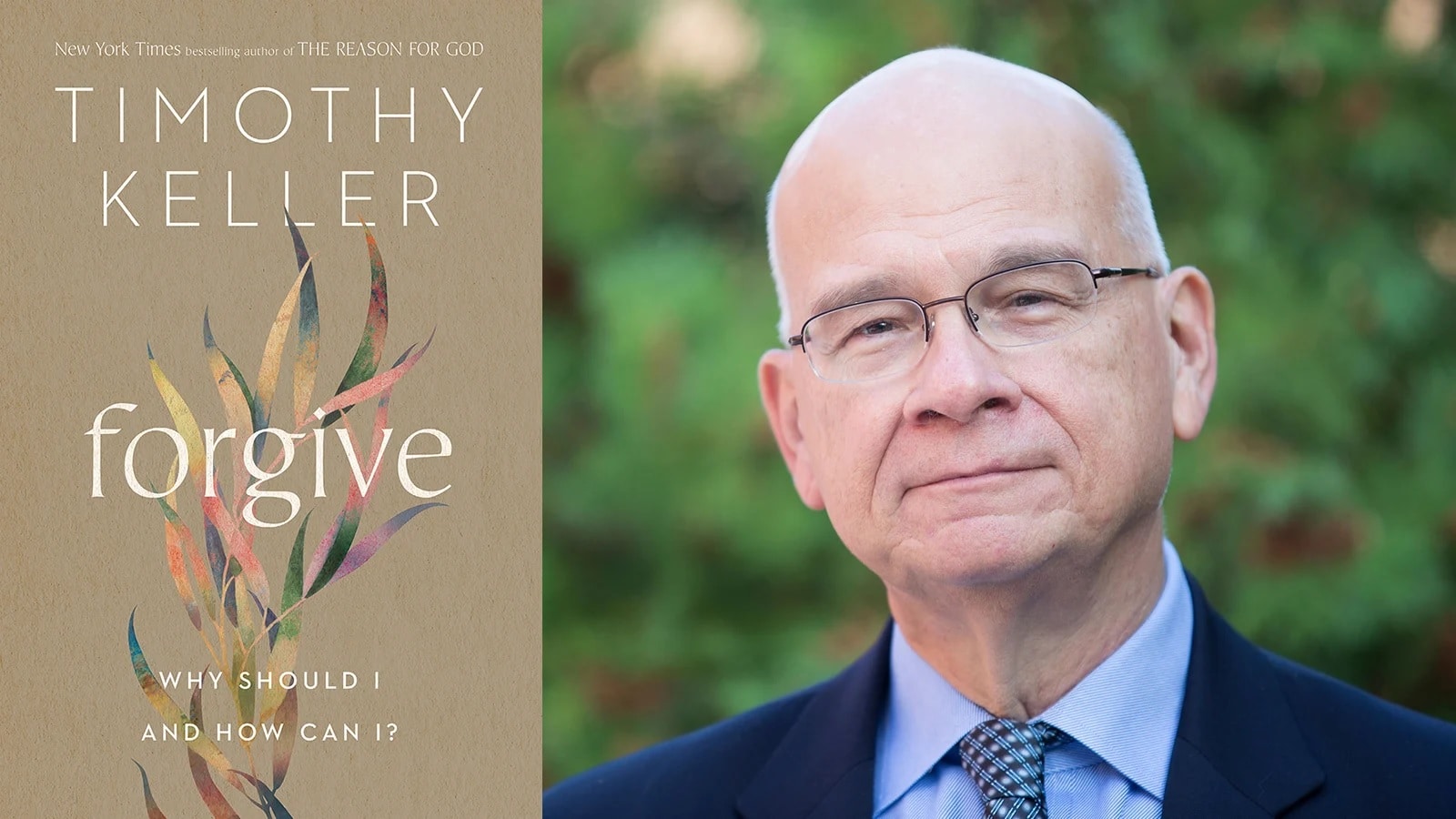
“People have used forgiveness as a way of destroying the truth,” said Keller.
The longtime pastor in New York City, whose books have sold more than 3 million copies, believes forgiveness is not possible without truth. He links the term forgiveness with the idea of “repentance,” which he says has fallen out of fashion.
That term, he said in an interview, means being truthful about our shortcomings and misconduct.
“The word repent means asking for forgiveness,” he said. “If you don’t think you’ve done anything wrong, you have not repented.”
Keller, who retired as pastor of Redeemer Presbyterian Church in 2017, has remained active in recent years despite being treated for pancreatic cancer. He is currently undergoing immunotherapy, which he said has shrunk some of his tumors.
“It has given me more time,” he said.
Known for his conservative but nonconfrontational approach to ministry, Keller has come under fire in recent months by those who say his “winsome” approach to engaging with culture no longer works in such a polarized time. Keller said he finds such criticism puzzling. As an evangelical pastor in New York, he said, his views were often in conflict with the broader culture. But that was not going to stop him from acting like a Christian.
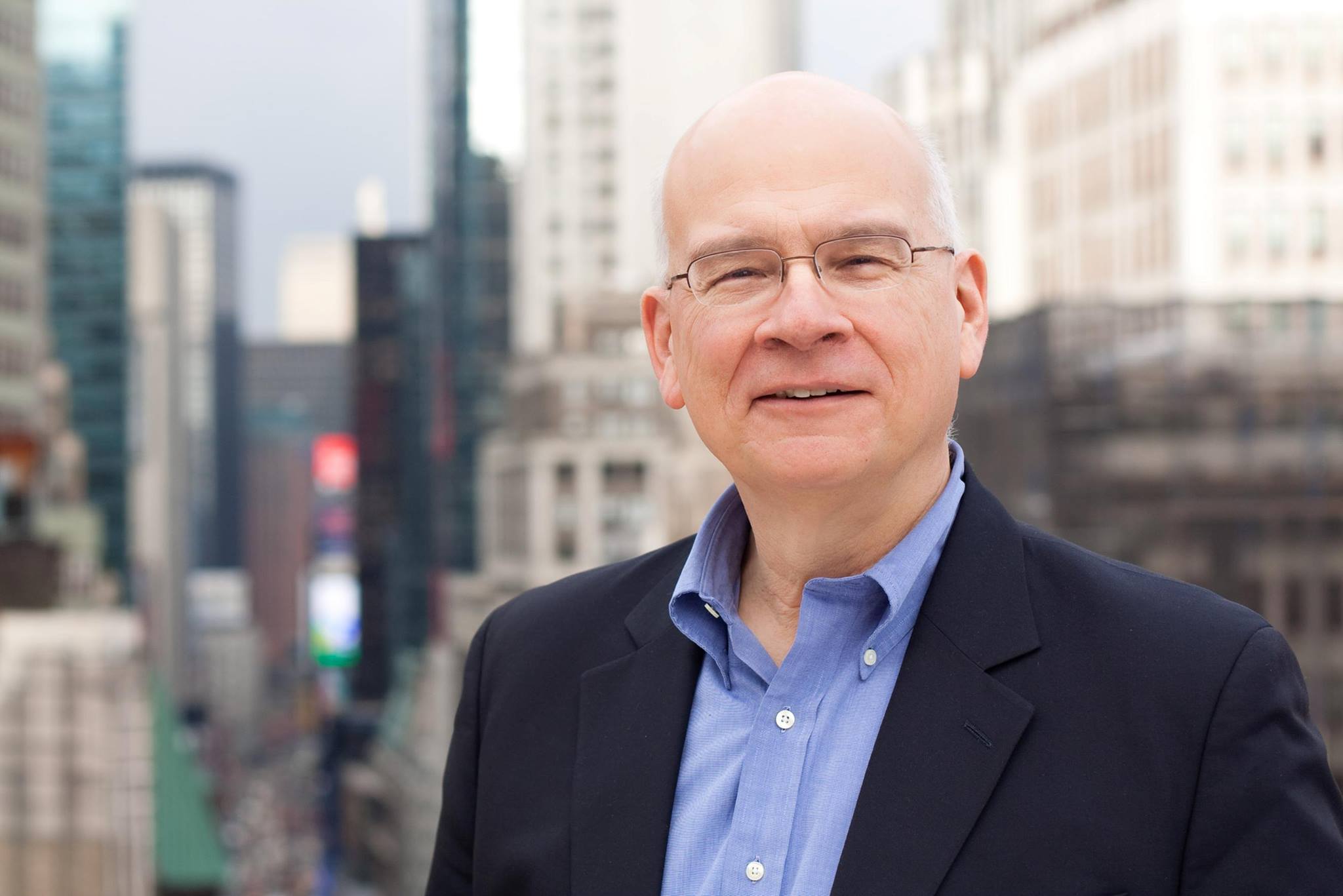
“This was never the neutral territory,” he said. “We always had opposition.”
In 2017, Princeton Theological Seminary announced plans to give Keller the Kuyper Prize for Excellence in Reformed Theology and Public Witness but later reversed course due to concerns about Keller’s views on women in ministry and LGBT rights.
Early on in the book, Keller quotes the late Desmond Tutu, the South African cleric; the late author bell hooks; and former New York Times columnist, now Atlantic columnist Elizabeth Bruenig about the importance of forgiveness and the need to balance justice with recognizing the humanity of those who do harm.
The quote from hooks, taken from a conversation with poet Maya Angelou, makes that point in a forceful way.
“For me,” hooks said, “forgiveness and compassion are always linked: How do we hold people accountable for their wrongdoing and yet at the same time remain in touch with their humanity enough to believe in the capacity to be transformed?”
In the book, Keller lays out why forgiveness is needed and outlines a step-by-step approach to how forgiveness can be granted in a healthy way — both on a societal level and in the mundane, day-to-day conflicts most people experience.
In an interview, Keller admitted that in the past, he’s struggled with granting forgiveness.
Early in his marriage, Keller said, he at times withheld forgiveness from his wife, even if she said she was sorry for doing something. Doing that, he said, gave him a sense of superiority but also allowed him to hold on to the sense he had been wronged. That led to struggles in their marriage — something they had to work through.
Withholding forgiveness can give people a sense of power over others, he argues.
“If you are out to punish someone,” he said, “you make it really hard for them to ask for forgiveness.”
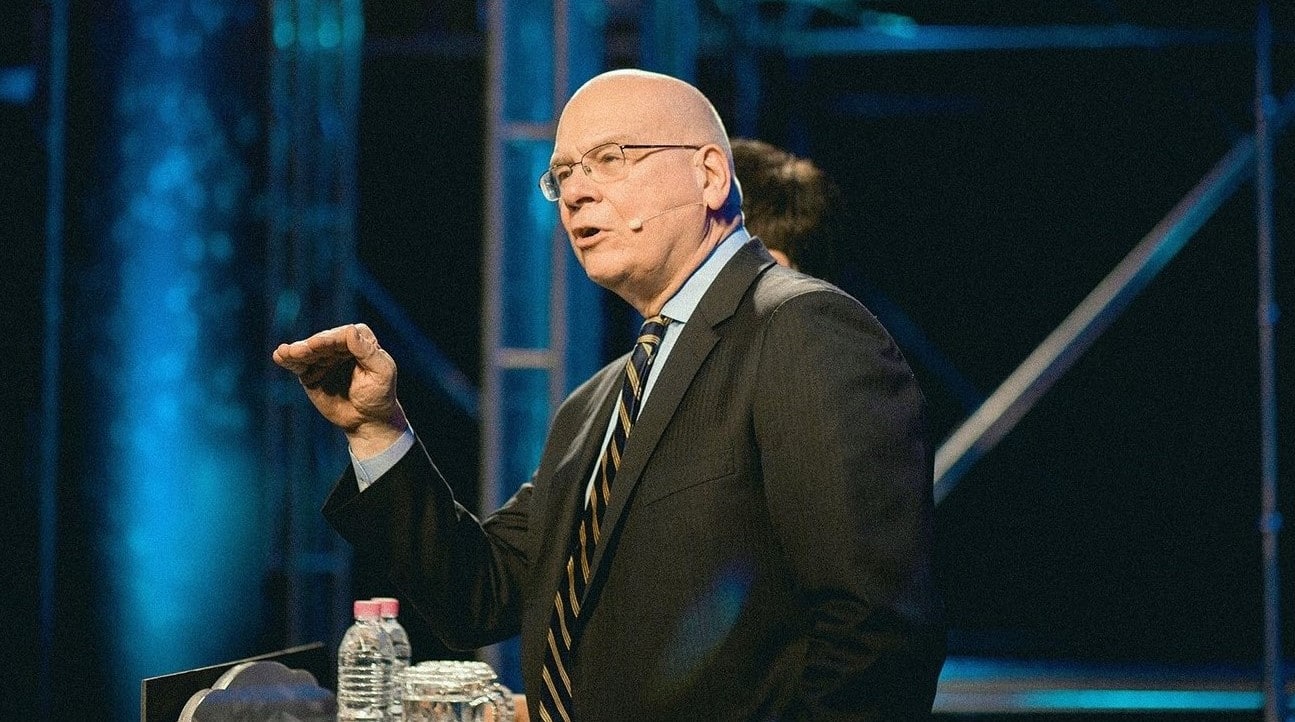
For Keller, one of the key aspects of forgiveness is what he calls “willing the good of the wrongdoer.” The idea is drawn from the command of Jesus that his followers love their enemies.
“A secret to overcoming evil is to see it as something distinct from the evildoer,” he writes. “Our true enemy is the evil in the person and we want it defeated in him or her.”
Keller worries that in our polarized and highly litigious society, forgiveness is seen as weak or unwise. He also wonders if the fear of being canceled has made people unwilling to admit when they have done something wrong.
“People are just afraid to come right out and say, I really need you to forgive me,” he said. “They’re just afraid to do it.”
As a pastor, Keller argues reconciliation is the long-term goal of forgiveness. Forgiveness can open the door to restored relationships if those who have done harm are willing to make amends for their actions.
He also warns that forgiveness does not mean there are no consequences for misconduct. In particular, he said, a pastor or church leader who is guilty of misconduct can be forgiven, but may lose the right to ever be placed in spiritual authority again.
Keller also stressed that after forgiveness, trust has to be earned.
“I actually don’t think that if somebody has forgiven me, that means they have to trust me,” he said. “Forgiven people are not necessarily automatically restored exactly where they were. You have to have time to rebuild trust in people. And you need to recognize that and not resent it if they don’t trust you right away.”
 Bob Smietana es reportero nacional de Religion News Service.
Bob Smietana es reportero nacional de Religion News Service.




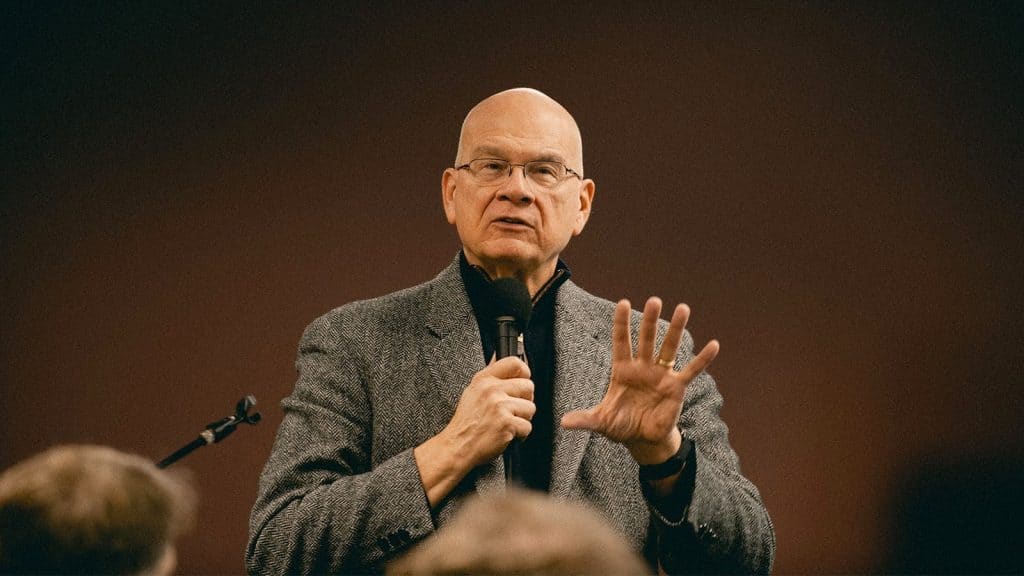


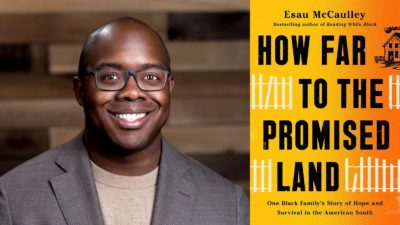

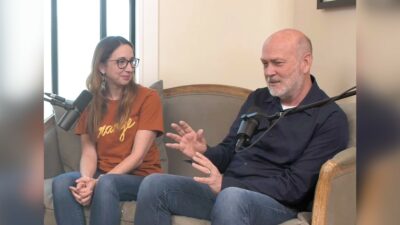
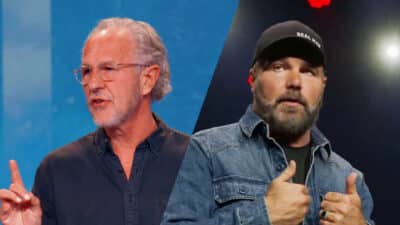









22 Respuestas
This is a topic that the church can’t get wrong. And yet, we so often do.
Perhaps we can attribute at least some of the error to nouthetic counseling and Jay Adams’ three promises of forgiveness (don’t dwell on the offense, never bring it up again, don’t tell others). First of all, this definition of forgiveness is not in the Bible. Further, in application, it silences the wounded, withholding ministry and care. At the same time, it withholds ministry to the offender who is in need of a Spirit-led sorrow that sends him to Christ for comfort and forgiveness and, then, to action in the form of repentance and restitution.
It is a paradigm devoid of fruitfulness and has caused much damage to the body of Christ.
I love this, Helen, and I agree.
I was very grateful to receive Biblical counseling that introduced me to vertical and horizontal forgiveness: . Vertical forgiveness is giving it (the situation and/or the person) over to God, which we are to always do. God knows how to handle it and heal it better than we ever could. And horizontal forgiveness is what we extend to each other – and that is to only be extended when there has been repentance and apology. Christ requires us to repent and confess Him as Lord in order to receive His forgiveness, which sets an example of how it is sloppy and irresponsible (to yourself and to the offender) to just blindly give forgiveness with no condition being met.
This helped me SO MUCH when it came to healing from some abuses of my own, and I love the opportunity to share it when I come across others who are struggling – often in silence – with a flawed view of forgiveness.
Marin, thank you, I needed to hear that.
Helen and Marin. Can I gently disagree. On the grounds that God and forgiveness is not just for Jews and Christians. While both Jewish and Christian projects are intrinsically valid and justified, and each project has an understanding of forgiveness as a mechanism within itself and sustaining itself. There then is a wider human field in which the genre of forgiveness plays out. I think any instance of authentic forgiving between humans, is of fundamental value. While it is also good to make clear what forgiveness is and should do within the narrower contexts of Judaism or Christianity; while avoiding defining Christian and Jewish forgiveness by way of dismissing other valuable variants of the genre.
I understand where you’re coming from Biblically although I’ve never heard it taught this way. Yes, Jesus tells us to “…forgive so that the Father may forgive you… ” Mk. 11:25. But here’s the thing about that. The point here doesn’t lie in our repentance, because as you will also find in multiple places, Jesus died “once for ALL”. That is not contingent on anyone’s repentance. It simply makes reconciliation AVAILABLE to “whosoever believes”. Forgiveness of others, therefore, simply opens our hearts to the awareness of God’s forgiveness of us, putting us in a perspective of needing to repent of something.
Stemming off the comment below of forgiveness not being restricted to Jews and Christians, but valuable for anyone; I agree. The Bible never says that the other person needs to apologize in order to be forgiven. It simply instructs us to extend forgiveness regardless. Whether the other person is ever even aware of it or not is not important. The point lies in clearing our own hearts, their heart is theirs to deal with.
Some may take this as literal spiritual abuse. This guy talking about forgiveness after all the things he’s pushed.
Sara, can you please explain? Thanks
Sara, I am curious to know more of what you mean by pushed? I attended his church for several years and felt he presented content with respect and dignity toward those who might believe differently. But it sounds like your experience might be different?
Based on her previous comments, Sara comes from a point of view that is extremely conservative and very political, so she probably sees Keller as too liberal given his avoidance of culture wars and his attempt to show moderation when dealing with various viewpoints.
Just a personal experience with forgiveness. I had a close family member who was mean and verbally abusive to me which left me deeply hurt. How I longed for her to realize her cruelty and ask for forgiveness. In the absence of this, I became very angry. I tried not to be, but the pain caused by her words and injustice of the situation ate away at my soul like a cancer. I would pray often for her to say “I’m sorry.” One day I finally realized that what I hoped for, short of God’s intervention, was not going to happen and nursing my grudge toward her had become a cancer in my heart and was robbing me of a lot of energy and joy. I decided to forgive (release) her and leave it fully to God to change her heart and bring me justice. I immediately experienced relief and joy. The downside of this is that though I could show her love, I could never trust her. This led to obvious restrictions in the way I interacted with her. That is the negative consequence when the forgiveness process is not done in the right way i.e. someone acknowledges their wrongdoing toward another, asks for their forgiveness and seeks to make this right.
When she was close to her death, she did ask for forgiveness in her own way. Oh, that it could have come earlier and we might have actually enjoyed each other more during her life. The biggest lesson I learned about forgiveness is this: being able to grant forgiveness may be possibly more about the forgiver experiencing healing, grace and freedom than the wrong doer doing whatever they are going to do. Only God can truly change a person’s heart.
God bless you, Beth.
I have an ex who was also verbally and emotionally abusive to me without apology. I went through something similar – praying for YEARS that they would repent and ask for forgiveness. Well, instead, he went on to get married, buy a beautiful home, and start an adorable family. To say I felt anger and frustration is an understatement.
It was through spiritual guidance and counseling that I learned that the “vertical” forgiveness is for ME. Yes, I have occasional setbacks (we have mutual friends), but just as we are to forgive “70 times 7” times, I let those setbacks send me to prayer.
Know that you aren’t alone, and I appreciate your sharing.
Thank you Marin for your kind words and sharing your story. I am so sorry you had to experience what you did and I admire your response to God and how you did not let this stop you from becoming a person who is admired by so many, including myself. You possess the ability to think critically about complicated, difficult situations with a nuanced wisdom and express your viewpoint in a most clear and articulate way. I always look forward to your posts. Thank you again for what you bring to many lives.
“The biggest lesson I learned about forgiveness is this: being able to grant forgiveness may be possibly more about the forgiver experiencing healing, grace and freedom than the wrong doer doing whatever they are going to do. Only God can truly change a person’s heart.”
Beth, that chimes with my own life-learned sense of things; so a useful truth you express well.
This does leave the residue you speak to as, “I could never trust [the forgiven other]”. The metaphor I take recourse to is “being objective” about such an other. So being objective I take to speak to the limitations of myself, relative to what we might see as the truth and grace of God. So something like a pragmatism, where we go as far as we can in the right direction. I think that the sentiment of “… forgive us our trespasses, as we forgive those who trespass against us ..”, covers that pragmatism.
Ding, ding, ding, ding, buy my book!! Keep Jesus, INC, rolling.
Unbelievable! WWJT?
Beware the unacceptable face of Ecclesiastes 12:12.
I am curious. Has Tim Keller ever apologized for his endorsement and friendship with CJ Mahaney and Sovereign Grace?
The the grace of THE LORD finds expression in this book.Amen
A lot of them are. But “being wrong” is not always the same thing as “disagreeing with Brother Keller”.
“Tim Keller: Too Many Christians Are Afraid to Admit They’re Wrong”
Too many Christians have been trained by their church not to take full responsibility in their own actions, how to deflect responsibility, how not to be an example of not bearing false witness, and will not truly publicly repent or resign when they have clearly been caught living dishonestly through others charity/adultery/extravagant lifestyles, instead demanding special treatment/status (because they have perverted the certain scriptures) to “override” God’s Laws.
As long as preachers continue to say, “This is not me telling you this. This is The Word Of God” this will continue to be a problem.
“As long as preachers continue to say, “This is not me telling you this. This is The Word Of God this will continue to be a problem.””
As long as the congregations continue to not read the Bible themselves, take a man or woman’s word over God’s, or do not challenge what is being said with full scriptural references, you are correct. Unfortunately as long as the person standing on the stage tells his/her audience what it wants to hear and allows sinful behavior without consequence, this will never happen.
Permit me to disagree with the long-term goal of forgiveness being that of reconciliation. There are situations where that may not be advisable. Short of that, it may simply not be desired. It’s entirely possible to forgive someone and never speak to them again. Ultimately, it’s possible to forgive someone without even letting them know about it. The point lies in clearing our own hearts. The other person’s heart is theirs to deal with.